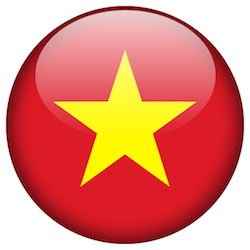Emerging Markets
Vietnam-Focused Fund Enters The Stock Market Big League

While Vietnam might still be classed as a frontier market, a fund tapping into this Asian economy has been moved to the LSE's Main Market, promising more liquidity interest and attraction to investors.
A Vietnam-focused fund has started trading on the Main Market of the London Stock Exchange, which its managers say will boost liquidity and attract a wider audience of investors.
VinaCapital announced the switch to the LSE’s main market of the Vietnam Opportunity Fund earlier this week. The fund is a Guernsey-incorporated company, structured as a closed-end investment company.
The fund has, VinaCapital said in a statement, “significantly outperformed the MSCI Emerging Markets Index benchmark for the past five years, with the cumulative five-year performance of 37.9 per cent, three-year performance of 16.3 per cent and one-year performance of -4.6 per cent”.
VinaCapital holds more than $1.3 billion in assets under management and says it is one of the largest names to invest in Vietnam. Another firm with a range of funds focused on Vietnam is Dragon Capital, while JP Morgan Asset Management has the JP Morgan Vietnam Opportunities Fund. (Dragon Capital has spoken at conferences organised by this news organisation; for an example, see here.)
“The company has come a long way since its inception in 2003, and we believe a listing on the Main Market marks the start of a new chapter of growth,” said Andy Ho, managing director of the company and chief investment officer of VinaCapital Group.
This publication later spoke to Andy Ho about the fund, and the move to the LSE’s Main Market.
What is the main reason for the move to the main
market?
Given the growth of the fund, the Main Market is a more
appropriate platform at this stage, and we believe such a move
enhances our profile and status among retail and institutional
investors. Further, a move to the Main Market will enable VOF to
be eligible for inclusion in the FTSE Index. Hopefully, with a
broader profile and interest, VOF’s liquidity will increase and
the discount to NAV may contract over time.
What are the most important benefits in your view of this
market move? How will it affect the fund and the likely amount of
trading in its shares? Will it reduce the risks of issues such as
large share discounts to net asset values, etc?
We see a number of benefits to moving to the Main Market. First
is the higher profile such a listing affords us, and the greater
exposure it gives us to a wider audience. Second is we believe it
places the company in a better position to improve liquidity and
increase the valuation of shares because of the larger number of
institutional investors who regularly trade on the Main Market.
Also, shareholders benefit from the more rigorous regulatory,
reporting and corporate governance requirements imposed on Main
Market companies.
How do you describe the investment philosophy of the
fund? What sectors in Vietnam does it concentrate
on?
Our strategy takes advantage of market inefficiencies by
investing in public and private equity. We focus on opportunities
normally not available to other investment shops, especially
private businesses.
We focus on sectors benefiting from the growth of Vietnam’s domestic economy. More specifically in sectors that benefit from a strong consumption story, such as consumer discretionary, retail, construction and construction materials, healthcare, and education.
Can you outline your main thoughts about Vietnam's
economy?
We are generally optimistic about Vietnam’s prospects.
Macroeconomic signals such as GDP growth, foreign direct
investment, inflation and other indicators are positive --
Vietnam is expected to have one of the fastest growing economies
in the world in 2016. That said, we believe that there remains
room for improvement in such areas as privatization of
state-owned enterprises, opening more companies to more foreign
ownership and improved market liquidity.
Do you see wealth managers as being holders of this fund?
What sort of investor is this fund aimed at?
We do see wealth managers as shareholders. More broadly we target
institutional and retail investors looking for a way to
capitalize on Vietnam’s growth story, via both listed equity
investments and private equity investments carried by a very
experienced local team.